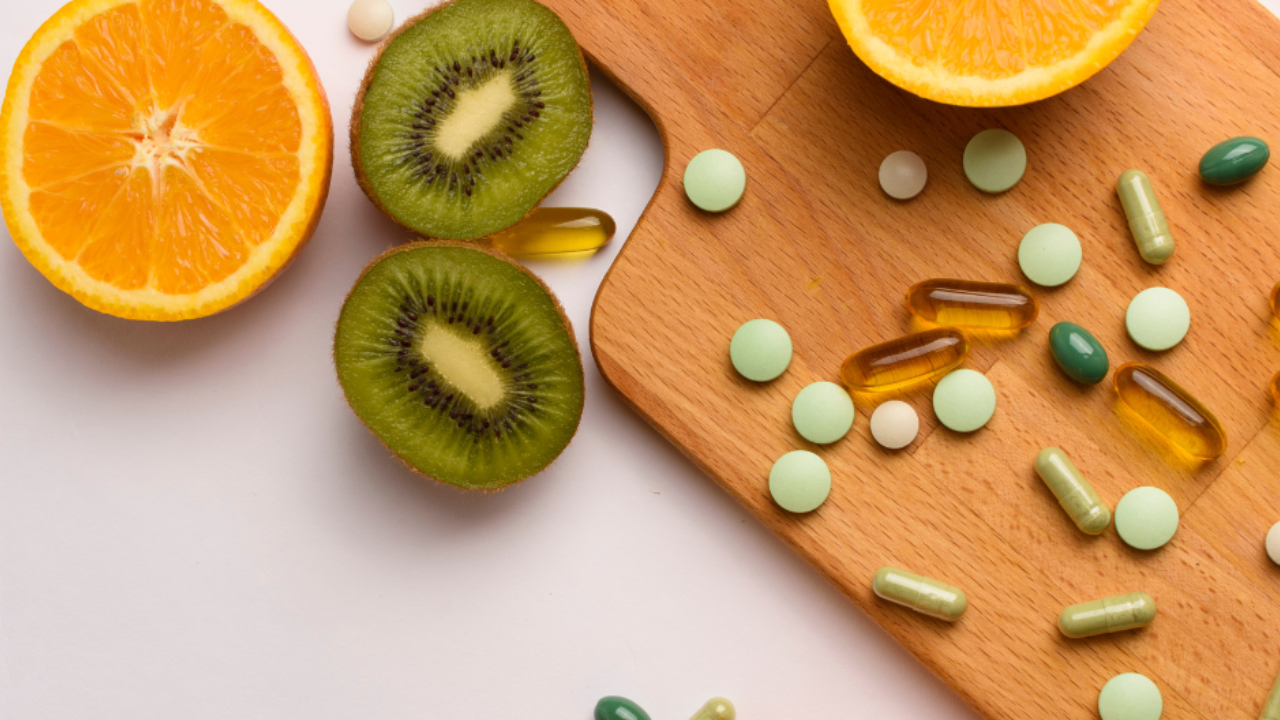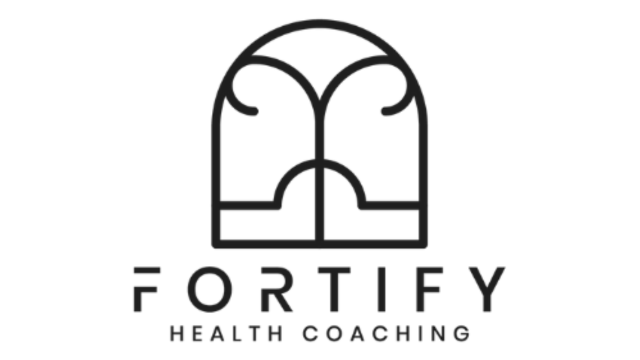
Food as Medicine for Digestive Health (Breastfeeding-Friendly)
Aug 25, 2025Written by: Meredith Paci, Functional Health Coach
The goal here is to use food strategically as “medicine.” It brings a whole new meaning to that statement ‘fuel for the soul’. Supplements are limited during breastfeeding, so we lean on rotation and diversity to get therapeutic benefit. That said, everyone can benefit from this approach. And yes, I’ll call myself out too, because being a creature of habit is easy and familiar.
Now, a quick but important disclaimer: this vlog is going to cover food and food only. It’s titled Breastfeeding-Friendly, but that does not mean every food mentioned here will be well-tolerated by every baby. For example, garlic can sometimes alter the flavor of breast milk. Some infants are unfazed, while others may fuss or nurse differently. Maternal diet can influence the composition of breast milk. Certain strong flavors may carry through, and sometimes what benefits mom’s digestion might create temporary changes in baby’s digestion or comfort. This doesn’t mean those foods are “bad.” It just means every body and every baby responds differently…if you notice something off ask yourself what changed.
Also, just because something is healthy or recommended doesn’t mean it’s the right fit for you or your baby. If you don’t feel good eating garlic, don’t eat garlic. If oregano makes you gag, please don’t force oregano into your meals. This list is meant to be robust, exciting, and inspiring…not prescriptive. Lastly, I want to be incredibly clear. I am not, in any way, suggesting you stop any medication that has been suggested to you and you use ‘food as medicine’. Please consult your provider. Now, let's get inspired!
I was inspired to create this by a conversation with one of the coaches I mentor as she is presently working with a client in just this situation. Food-as-medicine is something Sarah and I firmly believe in. One of the first things we do with clients is make sure they’re eating solid, nutrient-dense foods before we jump into deeper testing…typically. For most people, nutrition is the foundation and it’s where we start.
The Food as Medicine Challenge:
Try to rotate foods every 3–4 days as best you can. Variety matters for everyone. Rotating ensures coverage across multiple categories:
-
Broad-Spectrum Antimicrobial Foods (bacterial, fungal, parasitic, viral)
-
These foods can help the body naturally manage unwanted microbes while supporting a balanced internal ecosystem.
-
-
Polyphenol-Rich Foods
-
Helpful for gut lining, supporting keystone commensal “happy bacteria” such as Akkermansia, reducing inflammation, improving cardiovascular health, regulating blood sugar, and protecting against oxidative stress.
-
What are polyphenols? They are plant compounds with antioxidant and anti-inflammatory properties. I mean wow right!?!
-
-
Foods that Support Bile Flow & Liver Health
-
These help with digestion of fats, clearance of toxins, and healthy gallbladder/liver function.
-
-
Butyrate-Producing Foods (short-chain fatty acid producers)
-
Supports gut lining strength, reduces inflammation, and promotes overall intestinal resilience.
-
What is butyrate? It’s a short-chain fatty acid that acts as fuel for your beneficial gut bacteria.
-
The Specifics
1. Broad-Spectrum Antimicrobial Foods
These foods act against bacteria, fungi, parasites, and even some viruses. They support microbial balance without the need for concentrated supplements. Most concentrated antimicrobial supplements cannot be considered breastfeeding-friendly, primarily because safety data is limited or lacking. In addition, intentionally speeding up detoxification during pregnancy or breastfeeding carries significant risks and is not recommended. Hence why we recommend a food as medicine approach.
-
Garlic → antibacterial, antifungal (Candida), antiviral, antiparasitic
-
Oregano → antimicrobial across bacteria (big nod to H.pylori), fungi, and viruses
-
Coconut oil (lauric acid) → antifungal, antiviral, antibacterial
-
Pumpkin seeds → primarily antiparasitic, some antifungal action
-
Ginger → antibacterial, antifungal (H. pylori inhibition shown), anti-inflammatory, safe in pregnancy via supplementation, supports breast milk volume
-
Manuka honey → antibacterial (incl. H. pylori), antifungal, antiviral
Bonus: Clinical data shows it inhibits multiple strains of H. pylori and is considered safe in pregnancy (Category A).
2. Polyphenol-Rich Foods
These foods are helpful for gut lining, supporting keystone commensal “happy bacteria” such as Akkermansia, reducing inflammation, improving cardiovascular health, regulating blood sugar, and protecting against oxidative stress.
-
Vegetables: spinach, broccoli, red onions, asparagus, red lettuce, shallots, carrots, artichoke
-
Herbs & spices: rosemary, thyme, peppermint, cumin, chili peppers (caution with spice), dill
-
Fruits: berries, apples, pomegranate, grapes
-
Other sources: dark chocolate, coffee, black and green tea, olives, nuts
3. Butyrate-Supporting Foods (Gut Integrity)
Butyrate is a short-chain fatty acid that keeps intestinal cells healthy and resilient. Food sources include:
-
Animal proteins: oily fish (salmon, trout, sardines), grass-fed beef
-
Plant sources: walnuts, flaxseeds (note these should be ground and stored in a light tight/air tight container in your refrigerator), chia seeds
4. Bile Flow & Liver Support
Efficient bile flow supports digestion, detoxification, and gallbladder health.
-
Bitter foods: bitter melon, cruciferous vegetables (broccoli, Brussels sprouts, cabbage, kale, radish, arugula), dandelion greens, dill, Jerusalem artichoke, lemon, lime
-
Choline-rich foods: egg yolks, salmon, and grass-fed beef. Choline needs are especially high in breastfeeding. Supplementation is safe and suggested for breastfeeding moms.
Targeted Food Strategies
-
Cranberry: Cranberry juice (or cranberry extract if preferred. Cranberry extract as a supplement that can be used in pregnancy and breastfeeding. It is a Category A option in pregnancy and a safe monotherapy for children. Cranberry helps inhibit urease and bacterial adhesion.
-
Pomegranate: Supports Akkermansia and gut lining resilience. Can eat this or enjoy as a juice
-
Raw Carrot salad (add olive oil + vinegar for a ‘dressing’): Supports healthy estrogen clearance and gut motility.
-
Beetroot: Encourages bile production and liver function.
-
Manuka honey (1 Tbsp, 1–2x/day): Naturally antimicrobial, effective against H.pylori and soothing to the throat and GI lining.
Herbal & Functional Teas
Gentle options to rotate in:
-
Hibiscus tea
-
Peppermint tea (soothing, polyphenol source… *if has reflux this may trigger it for some poeple)
-
Ginger tea (digestive, anti-inflammatory)
Omega-3 & Anti-Inflammatory Foods
Omega-3 fatty acids are essential for reducing inflammation and supporting gut diversity.
-
Fish: salmon, trout, sardines
-
Plant-based: flaxseed, chia seeds, walnuts
-
Fruits (minor amounts): kiwi, avocado, oranges, berries
Practical Rotation Example
Rotate foods by category so you’re not eating the same therapeutic foods every single day. For example add a few to your normal day like this:
-
Day 1–3: Garlic, broccoli, walnuts, cranberries
-
Day 4–6: Oregano, spinach, flaxseed, pomegranate
-
Day 7–9: Coconut oil, asparagus, chia seeds, beetroot
So here’s the bottom line. Food as medicine isn’t about trying to eat everything on this list. It’s about using food intentionally, rotating what you eat, and figuring out what works for you and if applicable for you… your baby if you’re breastfeeding. Supplements hold a powerful place, but food is the foundation.
And if you’re a coach reading this, and you want help applying this kind of strategy to your client cases, reach out to hear about our mentorship program. If you’re an individual and you want a personalized approach to your own health, our 1:1 Professional Strategy Session is what you’ll want.

